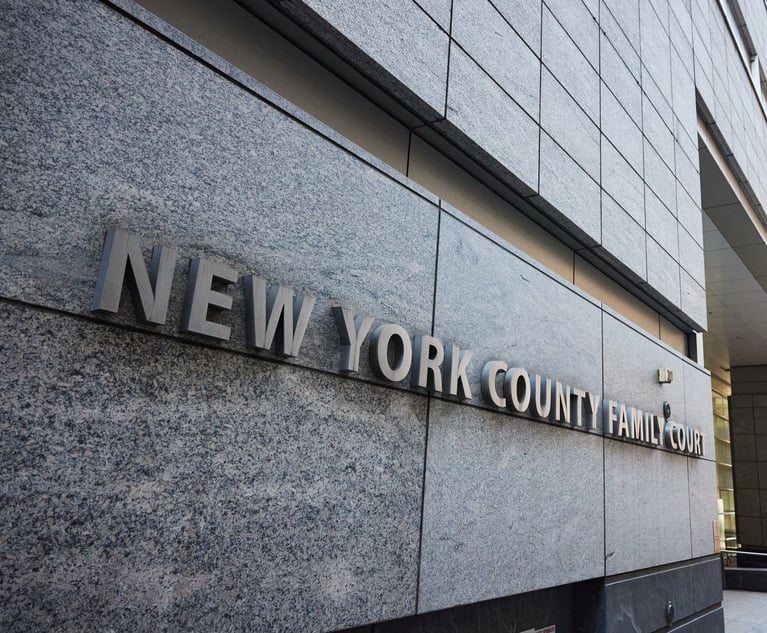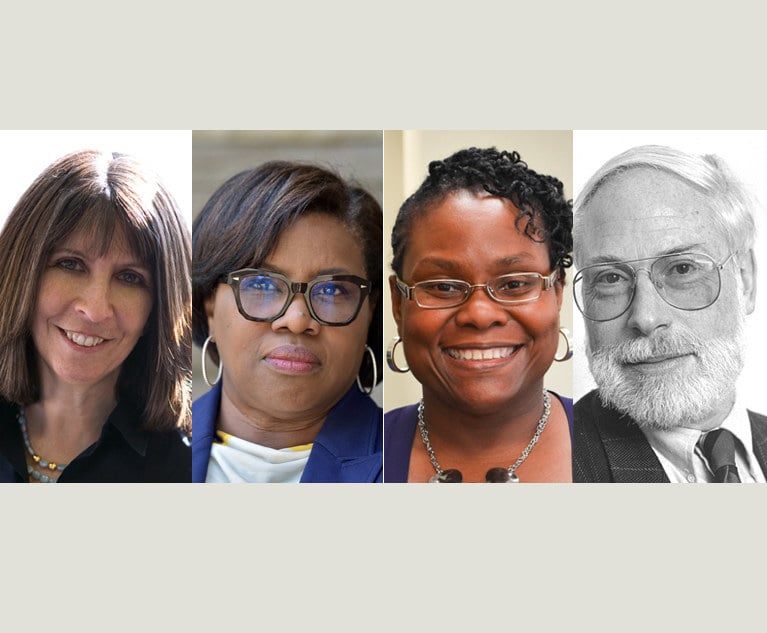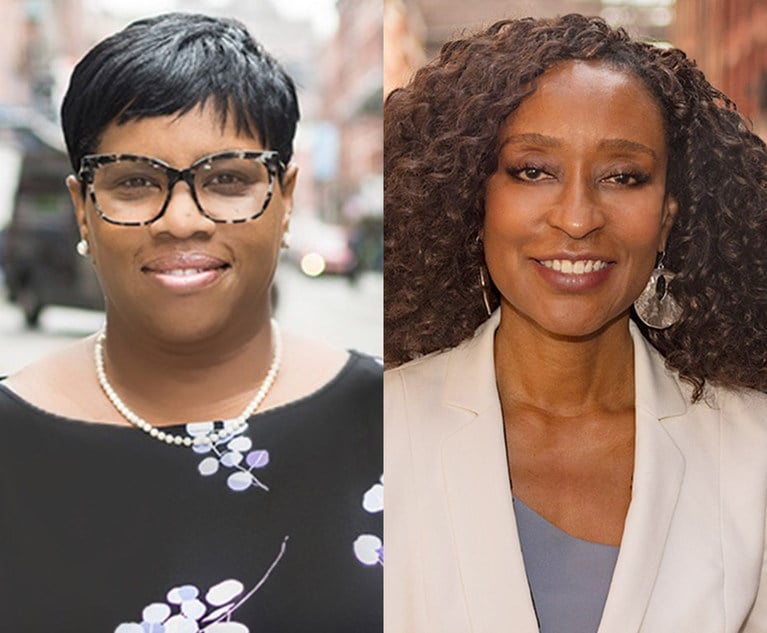Dawne Mitchell

July 23, 2024 | New York Law Journal
Simply Adding Family Court Judges Will Not Increase Access to JusticePutting more judges on the Family Court bench is only one of the many steps required to ensure that families have timely access to justice—and it cannot succeed in a vacuum, three contributors write in a letter to the editor.
By Liberty Aldrich, Karen Freedman and Dawne Mitchell
3 minute read

December 11, 2023 | New York Law Journal
Recent Column on Appointing Attorneys for Toddlers Relies on 'Careless and Ill-Informed Reading' of New York's Child Representation RulesA family court lawyer's recent unsubstantiated assertion in a Law Journal column that that judges "allow[] themselves to be potentially influenced by their favorite AFC on the issue of a toddler's custody," is both nonsensical and insulting to the judiciary, a group of prominent Attorneys For Children write.
By Dawne Mitchell, Karen J. Freedman, Liberty Aldrich and Gary Solomon
5 minute read

April 12, 2023 | New York Law Journal
'Not a Done Deal': City Bar Committee Responds to Law Journal Letter to the Editor on Funding for Assigned CounselLeaders of the New York City Bar Association's Council on Children clarify statements regarding potential increases in state funding to provide pay raises for 18-B attorneys and Attorney for the Child offices.
By Dawne Mitchell and Theresa Moser
3 minute read

April 07, 2023 | New York Law Journal
Don't Set Back the Rights of Kids and FamiliesWe are particularly appalled by the clear misunderstanding of the critical role of the Attorney for the Child (AFC) in custody and visitation proceedings.
By Karen Freedman, Dawne Mitchell, Karen Simmons and Merril Sobie
4 minute read

February 24, 2022 | New York Law Journal
'Bring Greater Justice to Our Family Court System': Government Should Ensure Equal Access to Justice for Families and ChildrenAt a time of crisis, when the vulnerable populations who routinely appear in Family Court need help the most, their legal issues have been deemed "non-essential."
By Dawne Mitchell and Adriene Holder
3 minute read
Trending Stories
- 1'I Can't Do This': Judge Blocks $16M Alex Jones Settlement
- 2TikTok Opts Not to Take Section 230 Immunity Fight to U.S. Supreme Court
- 3Feasting, Pledging, and Wagering, Philly Attorneys Prepare for Super Bowl
- 4Special Section: 2025 Real Estate Trends
- 5Snap Paid $63M in Fees to 2 Am Law 200 Firms in '24



